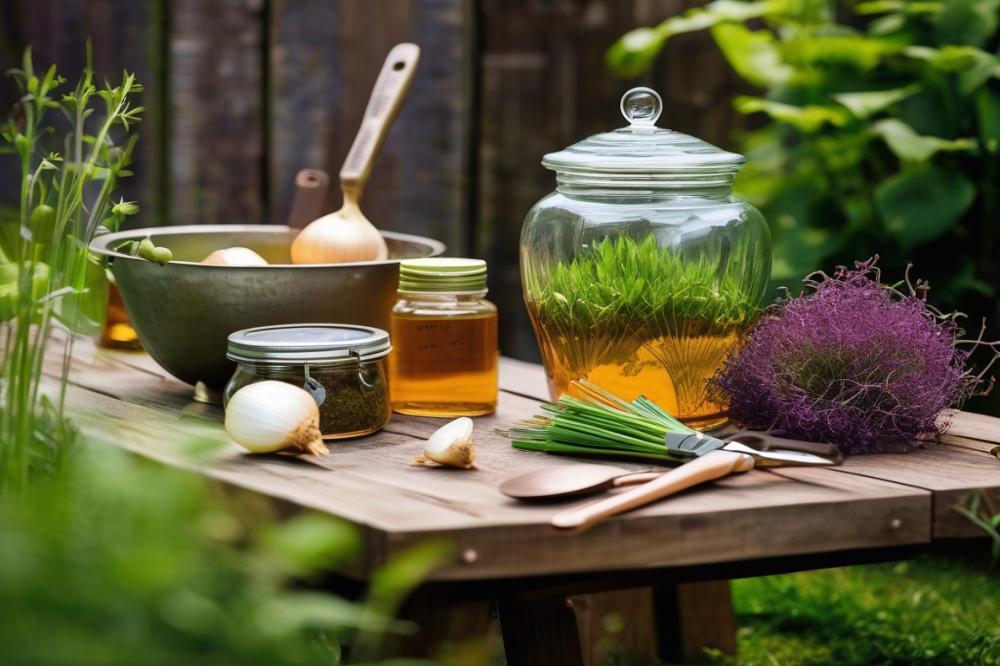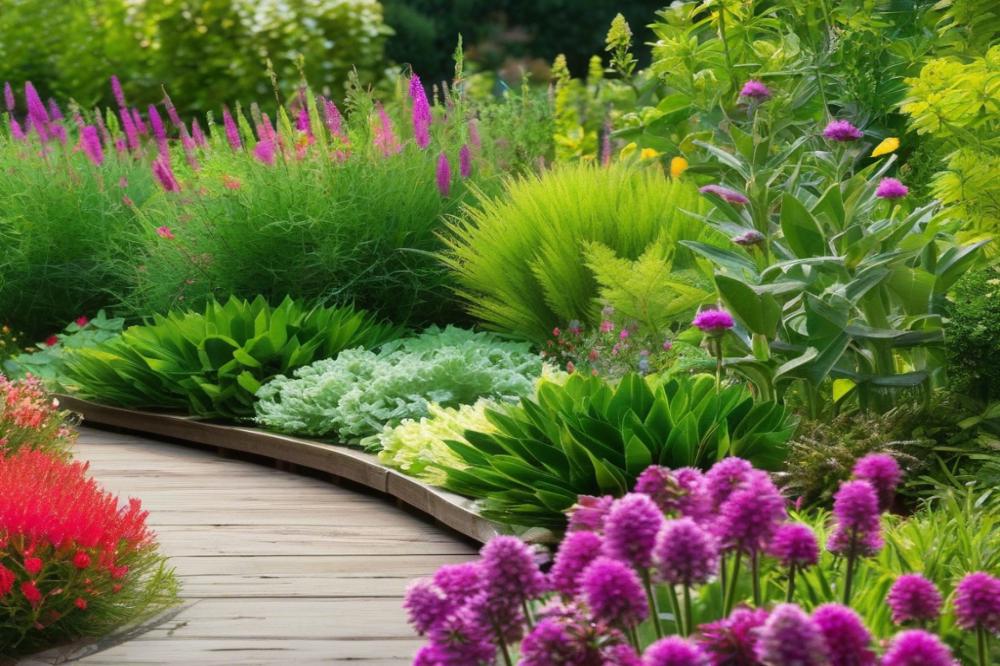Introduction
organic pesticides have gained popularity among gardeners who care about their plants and the environment. Many people want to protect their gardens without using harsh chemicals. Sustainable gardening practices not only benefit plants but also contribute to a healthier ecosystem. By choosing natural methods of pest control, gardeners can make a significant impact on their surroundings.
One easy and effective method for keeping plants healthy is by using onion peel tea. This simple blend can serve as both a natural fertilizer and a remedy against common pests. Onion benefits include deterring unwanted insects and enhancing soil enrichment. Utilizing such homemade remedies empowers gardeners to take charge of their gardening journeys while maintaining eco-friendly practices.
In a world increasingly focused on sustainability, finding solutions that offer value is essential. Homemade remedies are cost-effective and accessible to anyone. They provide a way to nurture plant health while reducing reliance on commercial products. Gardening tips that emphasize natural solutions can help foster a sense of responsibility towards the environment. Focusing on these practices can lead to thriving gardens, yielding bountiful harvests and protecting them along the way.
Understanding onion peel tea
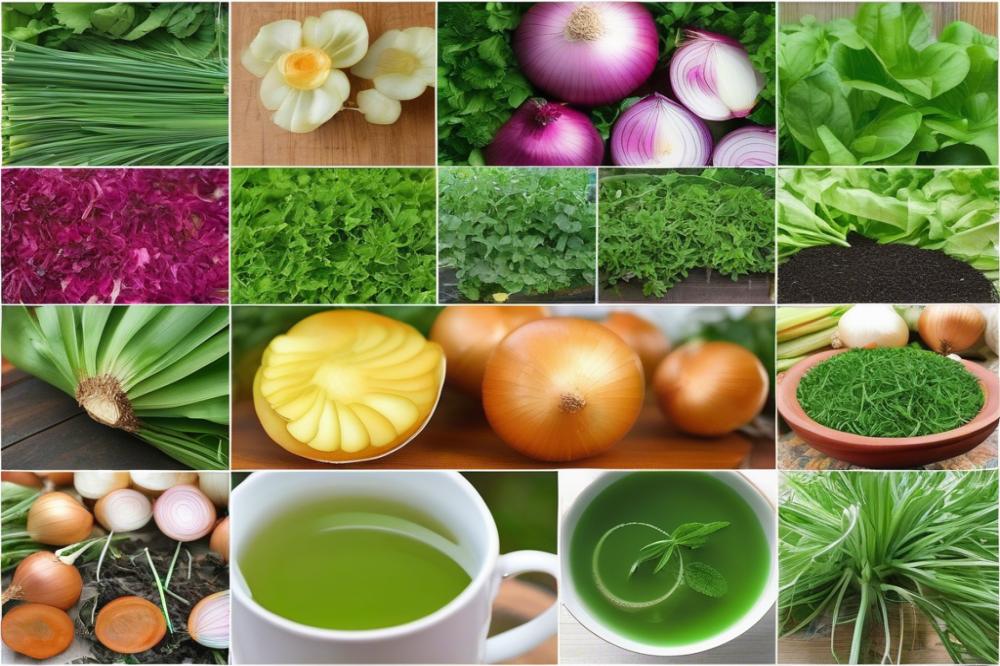

Onion peel tea is a homemade remedy that can greatly benefit your garden. Made from the outer layers of onions, this tea is packed with nutrients. It’s rich in antioxidants, vitamins, and minerals. These components contribute to plant health and vitality.
Nutritional Benefits of Onion Peels for Plants
Using onion peels provides various advantages for your garden crops. The peels contain quercetin, a powerful flavonoid with antifungal properties. This helps boost your plants’ immune systems. Moreover, the nutrients present in the peels promote steady growth. As they break down in the soil, they act as a natural fertilizer. Sustainable gardening practices make use of such resources, minimizing waste and maximizing plant support.
Role of Onion Peel Tea in organic pest control and Soil Enrichment
This unique solution plays a significant role in organic pest control. When applied, it can deter unwanted insects while being safe for your plants. Pests are less likely to invade a garden treated with this eco-friendly gardening approach. Additionally, it enriches the soil as it improves its overall structure. When the tea seeps into the ground, it adds essential nutrients. Gardeners often seek out these homemade remedies to foster healthy plants without expensive chemicals.
Ultimately, incorporating this simple DIY method can transform your garden. Start exploring the onion benefits, and enjoy a thriving, vibrant space filled with flourishing plants.
How to Make Onion Peel Tea
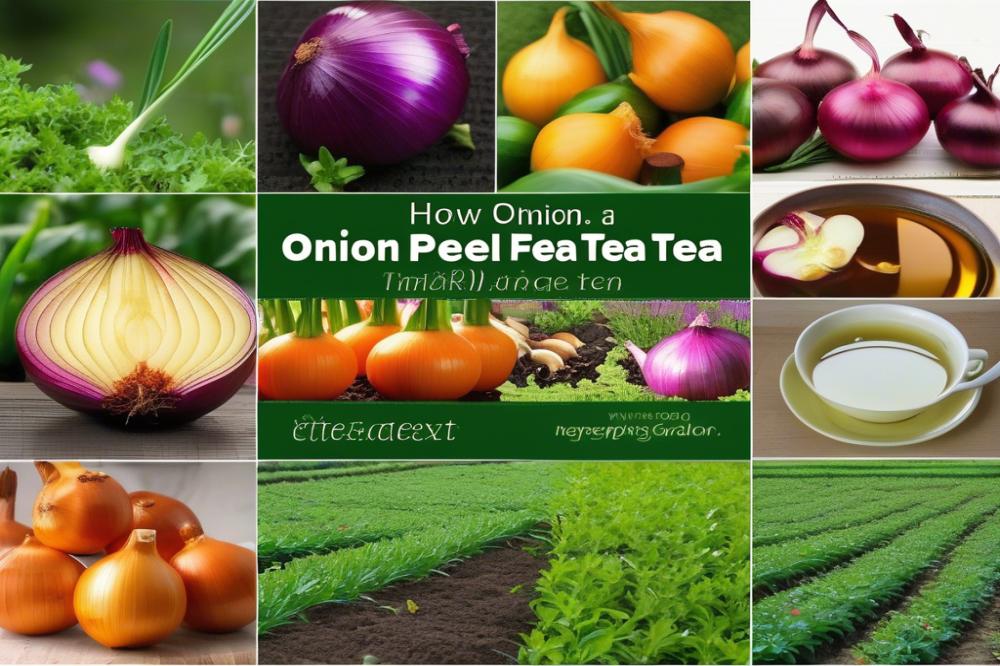

Ingredients Needed for DIY Onion Peel Tea
Creating this natural solution is simple and requires very few ingredients. Gather the following items to get started:
– A handful of onion peels (yellow, red, or white).
– 4 cups of water.
– A pot for boiling.
– A strainer or cheesecloth.
– A storage container or spray bottle for easy application.
Step-by-Step Guide to Preparing Onion Peel Tea
Begin by rinsing the onion peels under cool water. This removes any dirt or residues. Next, place the peels into your pot. Pour in the water, ensuring all peels are submerged. Bring the mixture to a boil over medium heat. Let it simmer for about 20-30 minutes. While it steeps, the beneficial nutrients from the peels will infuse into the water. After simmering, allow the tea to cool before straining the mixture. Use the strainer or cheesecloth to separate the liquid from the solids. Discard the peels, as you only need the tea. Store the finished product in a container or spray bottle for easy use in your eco-friendly gardening practices.
Tips for Optimizing the Brewing Process and Extraction of Nutrients
For the best results, try using organic onions for this recipe. The absence of chemicals contributes to the overall benefits of your homemade remedies. Additionally, consider steeping for a longer time if you desire a more concentrated solution. This stronger batch may enhance your plants’ resilience against pests. Remember to apply it during the cooler parts of the day. Morning or late afternoon is ideal for reducing evaporation. Regular use can promote plant health and enhance soil enrichment. Not only does this technique support sustainable gardening, but it also contributes to organic pest control. Keep these tips in mind as you explore your gardening journey!
Applications of Onion Peel Tea in the Garden
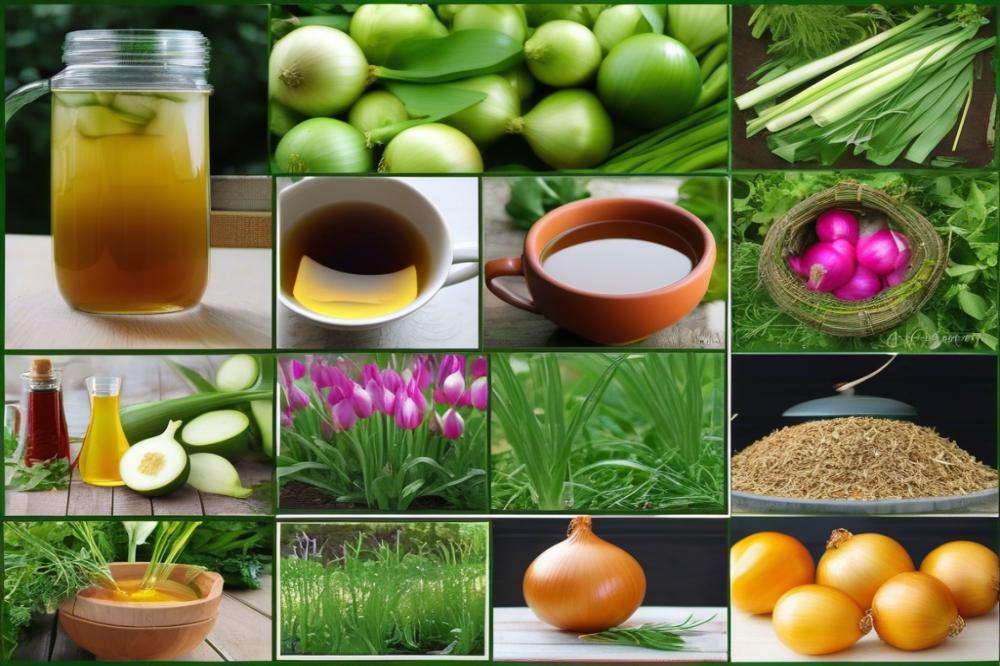

Using Onion Peel Tea as a Natural Fertilizer
One of the best gardening tips is to use homemade remedies like this tea for plant health. Rich in nutrients, it serves as a superb natural fertilizer. Nutrients found in onion peel help nourish the soil, promoting strong root growth in plants. By applying it regularly, soil enrichment can take place, enhancing overall plant vigor. This organic approach reduces the reliance on chemical fertilizers, appealing to eco-friendly gardening enthusiasts.
How Onion Peel Tea Can Deter Pests and Protect Plants
Pests can be a major headache for any gardener. Fortunately, that’s where this DIY solution comes in handy. The strong scent of onion can repel many unwanted insects. You may find it acts as effective organic pest control for various crops. Simply spraying the tea on affected plants creates a natural barrier that pests dislike. Many gardeners see improvement in healthy plant growth with this simple practice.
Best Practices for Applying Onion Peel Tea to Various Plants and Soils
Applying this tea doesn’t require complicated methods. Dilute the mixture appropriately before use. This ensures a balanced application rather than overwhelming your plants. Focus on roots when pouring it around the base of plants. For soils with poor drainage, a light application can help avoid saturation. Consider using this valuable liquid during the growing season for the best results. Experimenting with different plants will reveal what works best for your garden. Everyone loves a lush garden, and this method can enhance its beauty. Remember to check your plants regularly after application. This simple yet powerful remedy can elevate your gardening game.
Additional Benefits of Onion Peels
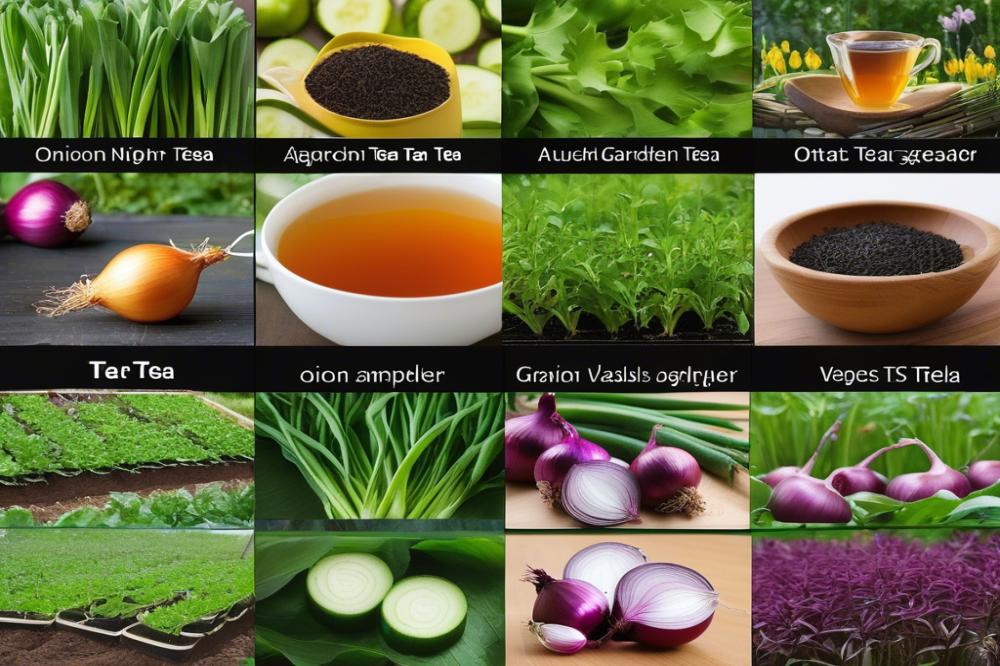

Onion peels are not just kitchen scraps; they are packed with antioxidant properties. These natural compounds help combat free radicals, which can harm your plants. By using onion peels, you are enhancing your garden’s defenses. This simple step can lead to healthier plants overall.
Moreover, onion peels can contribute to overall plant health. They contain vital nutrients that benefit the soil. When added to your garden, these peels act like a natural fertilizer, enriching the earth where your plants grow. This nutrient boost helps them thrive and resist diseases more effectively.
Eco-friendly gardening practices are gaining popularity. Many look for ways to integrate sustainable methods into their routines. Using homemade remedies like onion peel tea fits perfectly within this philosophy. It aligns with the idea of natural pest control, allowing gardeners to protect their crops without harmful chemicals.
Onion benefits don’t stop at just pest control. This timeless kitchen ingredient can also improve soil fertility. The nutrients in peels promote better growth and development among plants. Whether you’re growing vegetables or flowers, healthy soil is crucial for vibrant and flourishing gardens.
Exploring different gardening tips can open doors to new ideas. By incorporating more organic materials, you can create a sustainable ecosystem in your yard. Onion peels are a small yet powerful element that supports soil enrichment. This method encourages biodiversity and a thriving garden environment.
Gardening Tips and Tricks
Integrating onion peel tea with other homemade remedies can really boost your gardening efforts. Consider using a mixture of garlic and chili in water to create a powerful spray. This combination acts as a natural deterrent for many pests. Using various methods maximizes your chances of keeping harmful insects at bay and promotes healthy plants.
Complementary Organic Pest Control Techniques
Utilizing companion planting is a great way to strengthen your garden’s defenses. Pairing plants like basil with tomatoes can naturally repel insects while promoting growth. Additionally, using neem oil helps treat fungus and pests without harming beneficial insects. Homemade remedies can be very effective when combined, creating an environment that’s robust and thriving.
Advice on Maintaining Plant Health through Eco-Friendly Gardening
Focus on using sustainable gardening practices to nourish your soil. Adding organic compost serves as a natural fertilizer, enriching the ground with essential nutrients. Crop rotation is another technique worth incorporating, as it prevents soil depletion and breaks pest cycles. Always keep an eye on moisture levels in your garden; overwatering or underwatering can affect overall plant health.
Pay attention to your plants’ needs and act accordingly. Applying onion benefits directly to the soil can improve nutrient uptake. Investing in eco-friendly gardening also minimizes your impact on the environment. A little effort in these areas can lead to lush, green plants and a bountiful harvest.
Wrapping Up the Benefits of Onion Peel Tea for Your Garden
Using onion peel tea in your garden can offer impressive advantages. This natural concoction not only nourishes your plants but also acts as an effective barrier against pests. Garden enthusiasts appreciate how simple it is to create and apply. By choosing this method, you take a step towards healthier plants without relying on harsh chemicals.
Adopting sustainable gardening practices like this benefits the environment too. Safeguarding our ecosystem is essential. Every small effort counts in creating a greener world. By making organic pest control a part of your routine, you contribute to the well-being of your garden and the surrounding nature.
Remember, embracing DIY methods can lead to bigger rewards in your gardening journey. Using everyday materials helps keep costs down while promoting plant health. Combining creativity with practicality paves the way for an impactful gardening experience. Make your garden a thriving sanctuary by experimenting with eco-friendly solutions like this. Enjoy the process and watch your efforts transform your planting space!

